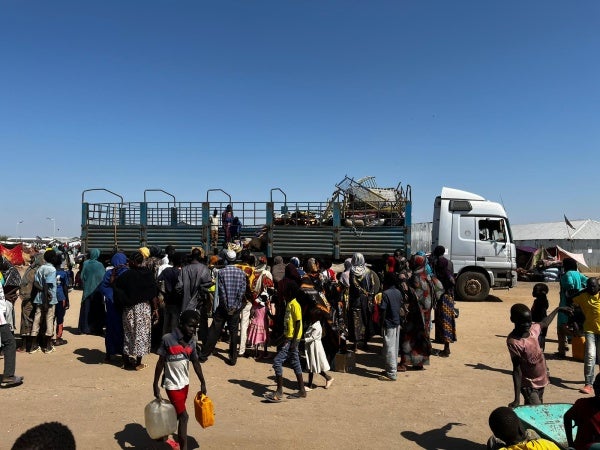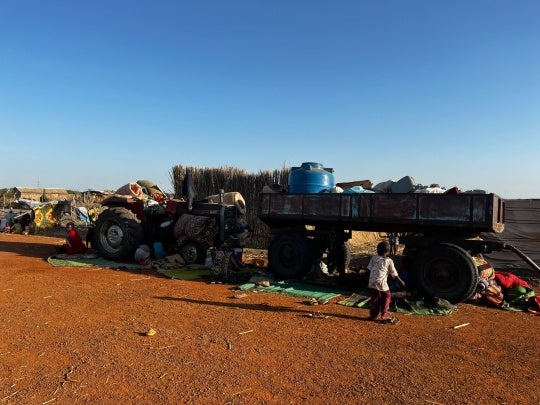Lire la version en français / Hier auf Deutsch lesen/ Lea la versión en español
Today, we’ve got exclusive reporting concerning the conflict in Sudan.
HRW’s Mohamed Osman and Laetitia Bader, have just returned from the town of Renk in South Sudan, near the border with Sudan. More than 700,000 people have crossed into South Sudan at this location since Sudan’s devastating conflict started in April 2023.
Remember, this is in addition to the more than half a million people who have fled over the border to Chad to the west, and the 11 million people displaced from their homes inside Sudan itself. The scale of the crisis is enormous.
They visited a transit camp in Renk that was envisaged to accommodate people temporarily. It now stretches along a one-kilometer dirt road with makeshift shelters and a few larger, sheet-metal sheds.
During last week’s visit, there was an uptick in people fleeing into Renk, with thousands of new arrivals rushing across the border, as fighting between the Sudanese Armed Forces (SAF) and the Rapid Support Forces (RSF) drew closer to the frontier. At the weekend, fighting reached the final town in Sudan before the border.
Many civilians from Sudan arrived in Renk, South Sudan, in recent days, crowded on to an open wagon, pulled by a tractor. © December, 2024 Laetitia Bader, HRW
People have different reasons for fleeing.
My colleagues spoke to residents of a village of 350 people who arrived in the last days in open-air trucks pulled by tractors. Women, children, older people, and adolescents all crowded into these trucks after they heard the RSF was approaching their village.
A family of 13, on the other hand, fled as the SAF arrived in their town, fearing they would be accused of being RSF members for having lived in an area under RSF control for so long. They fled with nothing but a bag of sorghum, picking up a few blankets along their journey.
The complete absence of possessions among those arriving is striking.
Since the first days of the fighting in Sudan, the RSF have notoriously pillaged people’s private property. They’ve rampaged through people’s homes, stealing gold, furniture, even children’s school bags. People have had to sell remaining possessions to be able to eat. Others have been robbed by fighters or criminal gangs as they fled.
Of those finally arriving in Renk, many have had to flee multiple times. Some said they arrived with little more than the clothes on their backs.
One woman stood in sharp contrast, as she got off the bus that brought dozens from the border. She held a little white fluffy dog in the cage. She had fled from Khartoum on a journey that would have taken just five hours before the war but now had taken her two weeks.
Most people have been forced to leave behind loved ones – older relatives who cannot flee, many who cannot afford to flee. Others have lost contact with their relatives in the mayhem as they fled.
With communications down in many parts of Sudan and many people having had their phones looted, reconnecting to separated family members is hard.
One man recently fled his hometown of Jebel Moya after two of his children, aged 8 and 11, were killed in an airstrike. That’s when his mother pushed him to flee. He left in the dark of night.
He was very troubled as he recounted his experience. He hasn’t spoken to his four surviving children.
“I see children playing in the transit center and think of them. If I heard their voices, it would be enough for me.”







